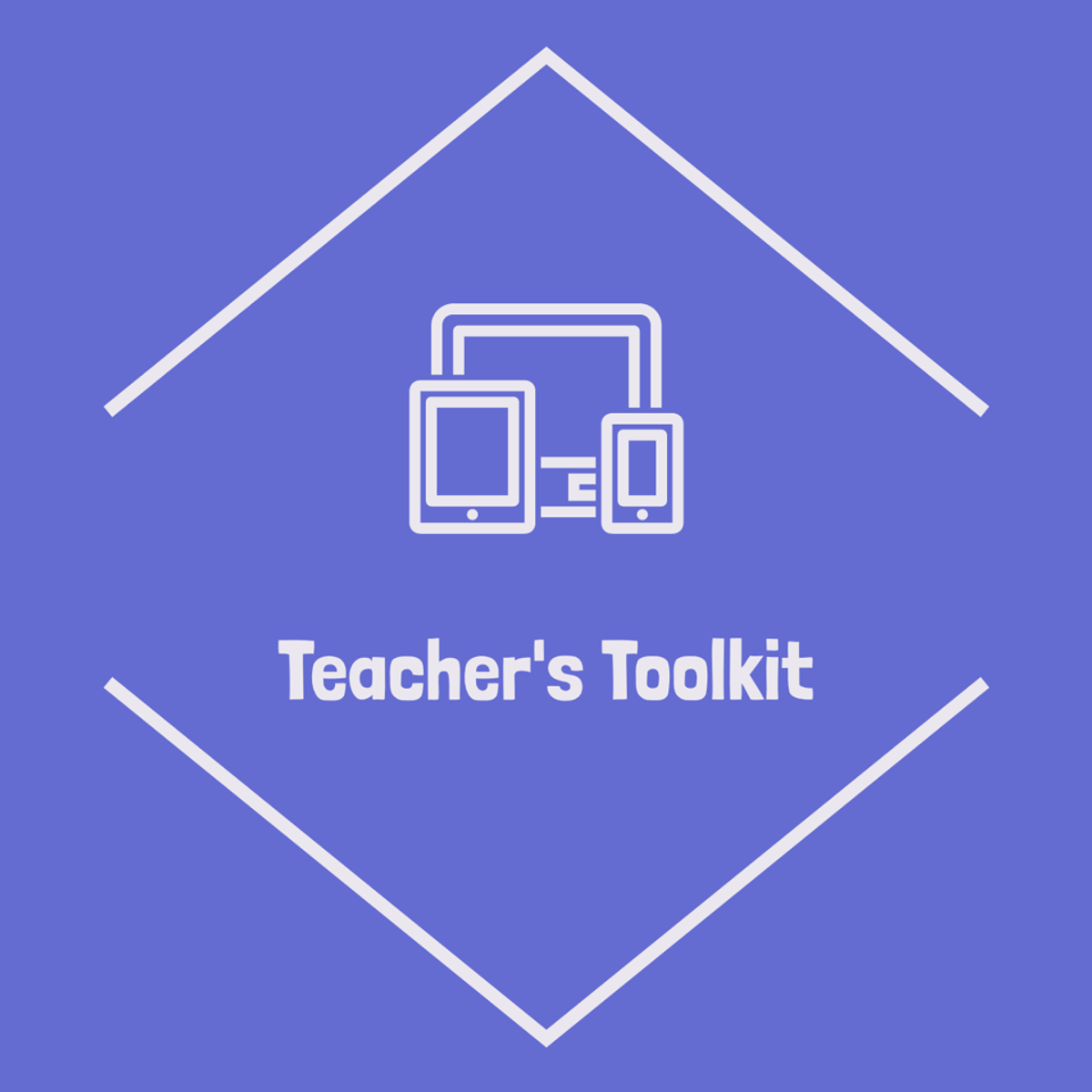Back to Courses









Personal Development Courses - Page 28
Showing results 271-280 of 514

Encouraging Student Collaboration with Padlet
By the end of this project, you be able to use Padlet to create a collaborative classroom fostering interactive student engagements, creating virtual lessons, and more. With Padlet, teachers and students can collaborate in real time on lessons, projects, and anything else you can imagine. Together, we will learn how to use Padlet to connect with students during virtual learning, for in class collaboration, and discover ways to improve our ability to differentiate instruction using Padlet. The opportunities are endless. Let’s get started using Padlet together!
*You will need a free 30-day trial with Padlet for this project.

Diversity with Inclusion in Organizations
For any group to perform at its best, it’s important that its members feel valued.
This can only be achieved if the team, beginning with the team leader, fosters an environment of inclusion where each person has the opportunity to contribute and is valued for his or her distinctive skills and perspectives.
We’ll be introducing you to established frameworks, including Kathryn Sorrells’ Intercultural Praxis Model, which will serve as the guide for this course. Through this model, we’ll learn how to raise awareness about our reactions to difference, optimize critical analysis, and develop responsible social action.
In this course we’ll also review some of the basic concepts that make up the process of inclusion. We’ll discuss theories surrounding inclusion in organizations, and we’ll provide you with strategies on how to react when a moment of exclusion, occurs within your team. Aside from foundational knowledge, you’ll take away from this course a practical toolkit for fostering an inclusive environment.
This course can be taken independent of or along with the companion courses: Fundamentals of Diversity; Cognitive and Experiential Diversity and Belonging in Diversity-Oriented Businesses and Organizations.

Organize yourself as a remote worker or self-employed
In this 2 hour long project-based course, you will learn how to manage yourself as a remote employed worker or self-employed, with essential practices, tips and tools. You will create a browser work persona and set up tasks, time and productivity management tools, use online shared documents and video meetings, professional messaging, accounting and invoicing, and even relax and focus with meditation noise and productivity management techniques. The ultimate starting guide for remote and self work!
Note: This course works best for learners who are based in the North America region. We’re currently working on providing the same experience in other regions.

Managing Debt
This course is aimed at anyone who has debt, is thinking of taking on debt, or wants to better understand debt as part of your overall financial picture. It covers a variety of debt types, as well as debt payment options. The course will help you assess your current debt situation and understand the paths to paying off your debt. This includes categories such as mortgages, credit card debt, and student loans. Learn how to differentiate between good and bad debt, as well as how to think about debt as you work towards your financial goals. This course is geared towards learners in the United States of America.

Hot Topics in Criminal Justice
The American criminal justice system is in need of reform. We incarcerate too many people. We pay insufficient attention to scientific advances that can help separate out the most and least culpable and dangerous. We grant the police far too much power to use force and technological surveillance.
As a way of thinking about dealing with these problems, this course examines two over-arching issues: What should we do with people who have committed crime, and how should we identify who they are? On the first issue, we will look closely at the nature and causes of mass incarceration, the death penalty, the lawfulness and usefulness of preventive detention and risk assessment, and the role of the insanity defense and neuroscience in assessing responsibility for crime. On the second issue, we will explore the laws regulating the police use of force, the growing role of technology and big data in facilitating police surveillance and detection and deterrence of crime, and the remedies for police malfeasance, including the exclusionary rule and damages actions.
The overall goal is to help thinking individuals assess today’s criminal justice system and consider ways of making it better. After completing this course, participants should be able to:
1. Describe the mass incarceration problem in the United States and why it might exist;
2. Suggest ways of reducing incarceration;
3. Criticize risk assessment instruments and their use in preventive detention schemes;
4. Discuss the pros and cons of the death penalty, the exclusionary rule, and the insanity defense;
5. Analyze the relevance of neurological evidence in a criminal case;
6. Identify some of the reasons innocent people are wrongly convicted;
7. Elaborate on the role race plays at sentencing and in police use of force, stop and frisk and consent searches and
8. List the types of surveillance technology available to police and the constitutional principles that govern their use.

Create a Virtual Classroom using Google Slides
By the end of this project, you will have created a virtual classroom that will engage your students during virtual learning or as a more engaging way to encourage practice at home. Teaching is constantly evolving. As we learn more about our students, we uncover new ways to ensure that they are not just learning - they are thriving. When we can connect our tech-savvy students to tech-connected learning, while also providing greater visual appeal, our students are more likely to enjoy learning. We can also encourage them to become lifelong learners as we connect them to the many tools and resources that are available at their fingertips online.
*You will need a free Google account in order to complete this project.

Engineering Project Management: Risk, Quality, Teams, and Procurement
Many Project Managers focus only on the scope, schedule and budget. However, a successful project requires that you manage risk, control the quality of the deliverables, engage and manage people and procure goods and services. This course will focus on these key support functions that make the difference between a highly successful project and an average one. During the course, you will prepare a Qualitative Risk Analysis and Evaluate the Cost of Quality for a provided Case Study.
By the end of this course you will be able to:
• Identify positive and negative risks
• Develop risk strategies
• Perform a qualitative risk analysis
• Identify cost contingencies and reserves
• Develop a quality plan
• Identify quality standards
• Utilize cause and effect tools
• Create a prioritization matrix
• Develop a team management plan that includes team development, identifying team members and clarifies roles and responsibilities
• Develop a procurement plan that includes contracts and incentives
All of this will position you to understand the more intangible aspects of project management to drive better overall performance.
Rice Center for Engineering Leadership is a Registered Education Provider through the Project Management Institute (PMI)®. Learners who complete this course on the Certificate track will be awarded 12 hours of Profession Development Units. These are recognized by PMI for continuing education or can be applied toward the 35 hours of education required for the Project Management Professional (PMP)® certification.
*PMI and PMP are registered marks of the Project Management Institute, Inc.

Assets in Accounting
In this second course, you will dive deeper into the world of bookkeeping and focus on accounting for assets. If you are familiar with bookkeeping basics, such as double entry accounting, you are ready for this course. You will gain an understanding of common asset types, learn how to account for inventory, calculate cost of goods sold, and work with Property, Plant, and Equipment (PP&E). Upon completing this course, you will use your new knowledge of assets to record transactions and produce financial statements for increasingly complex business situations.
By the end of this course, you will be able to:
-Summarize the common types of assets a business may have
-Describe the importance of control over inventory
-Outline how depreciation expense is reported on an income statement
-Illustrate how transactions can be recorded in terms of the resulting change in the elements of the accounting equation.
Course 1 Bookkeeper Basics, or the equivalent, is a recommended prerequisite for this course.
Understanding Medical Research: Your Facebook Friend is Wrong
How can you tell if the bold headlines seen on social media are truly touting the next big thing or if the article isn't worth the paper it's printed on?
Understanding Medical Studies, will provide you with the tools and skills you need to critically interpret medical studies, and determine for yourself the difference between good and bad science.
The course covers study-design, research methods, and statistical interpretation. It also delves into the dark side of medical research by covering fraud, biases, and common misinterpretations of data. Each lesson will highlight case-studies from real-world journal articles.
By the end of this course, you'll have the tools you need to determine the trustworthiness of the scientific information you're reading and, of course, whether or not your Facebook friend is wrong.
This course was made possible in part by the George M. O'Brien Kidney Center at Yale.

Fundamentals of Music Theory
This course, revised in 2022, will introduce you to the theory of music, providing you with the skills needed to read and write Western music notation, as well as to understand, analyse, and listen informedly.
It will cover material such as pitches and scales, intervals, clefs, rhythm, form, metre and time signatures, phrases and cadences, and basic harmony.
This course covers the fundamentals of Western music theory, from the absolute basics to some more advanced concepts. As such, it is the perfect course for beginners and more experienced musicians alike.
Popular Internships and Jobs by Categories
Find Jobs & Internships
Browse
© 2024 BoostGrad | All rights reserved